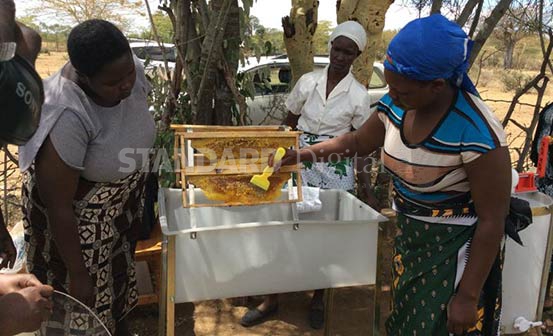×
The Standard e-Paper
Home To Bold Columnists

A group of 17 women from Kipsogon, Baringo County, are breaking barriers and setting the trend by demystifying the myth that bee keeping is a man’s role.
The women, aged between 24 and 70, have embarked on beekeeping to boost their incomes and provide for their families.